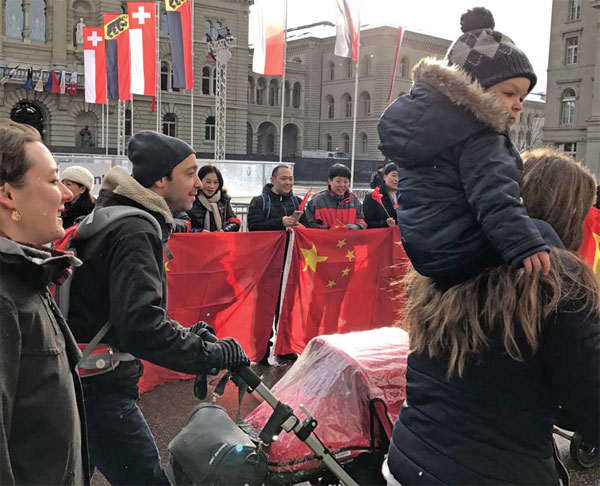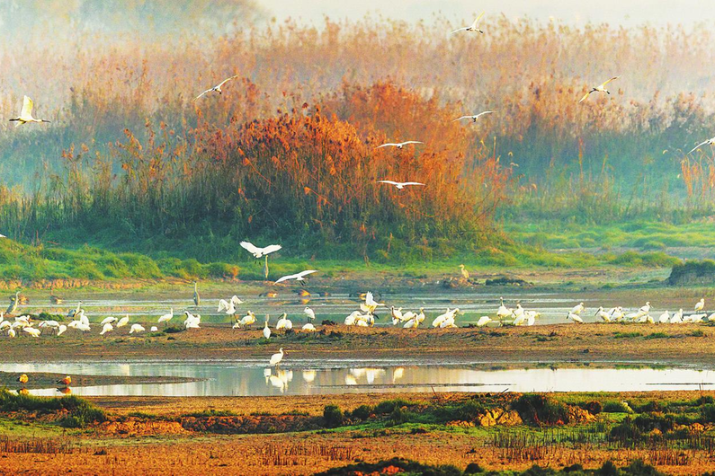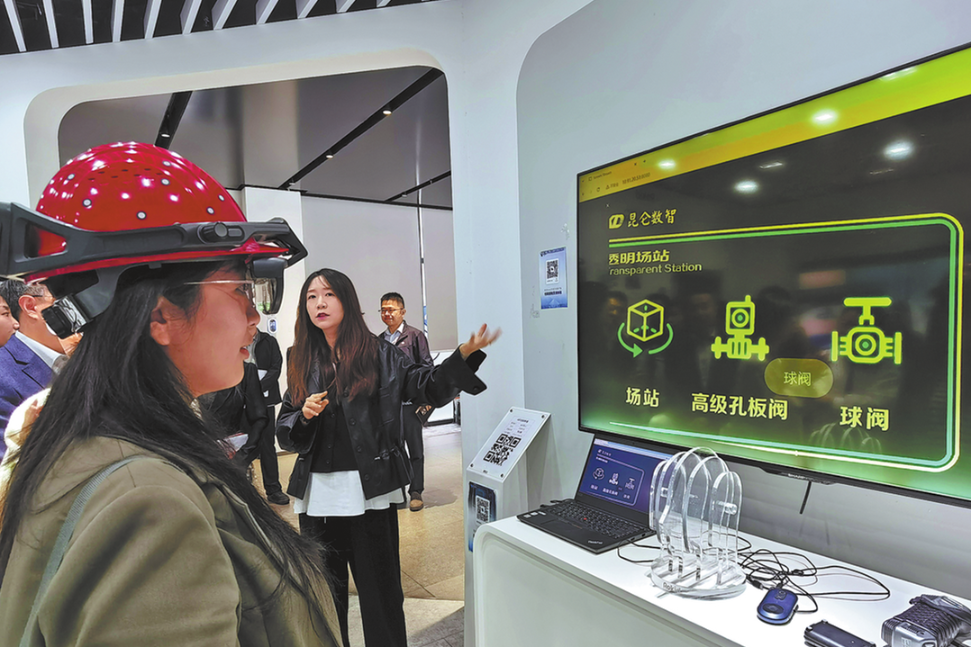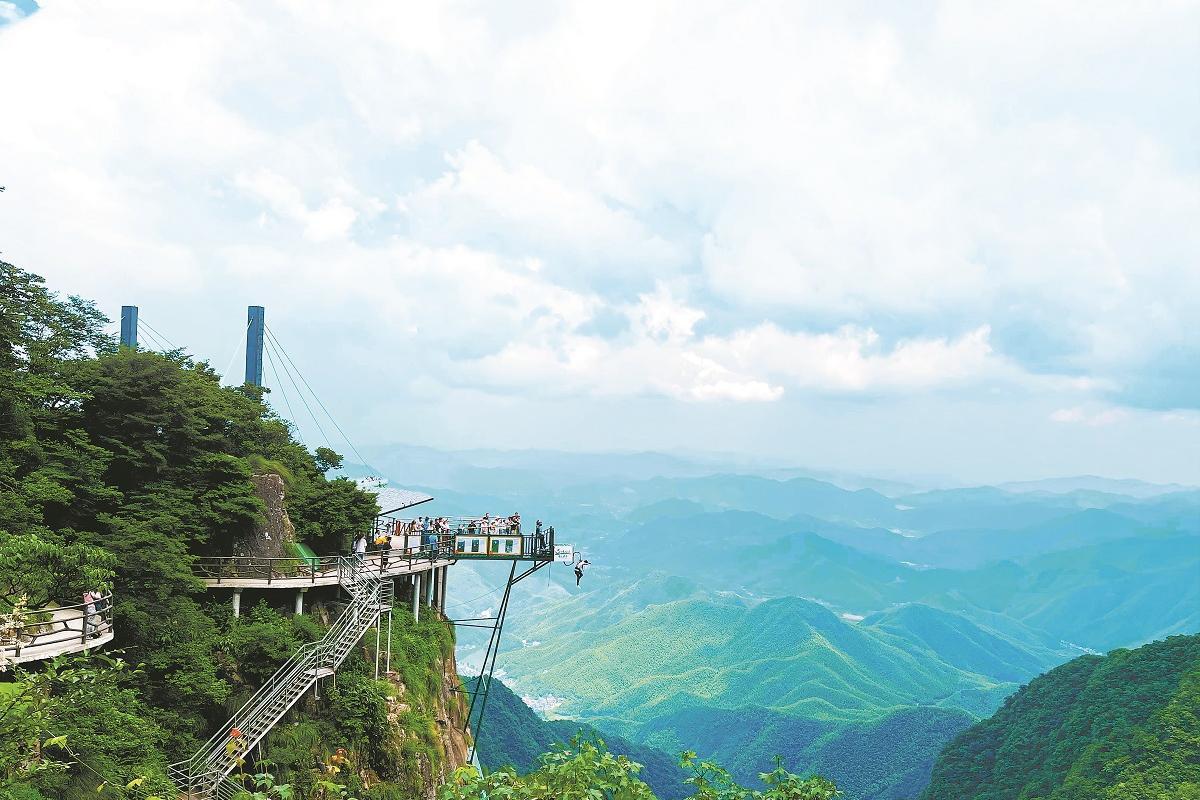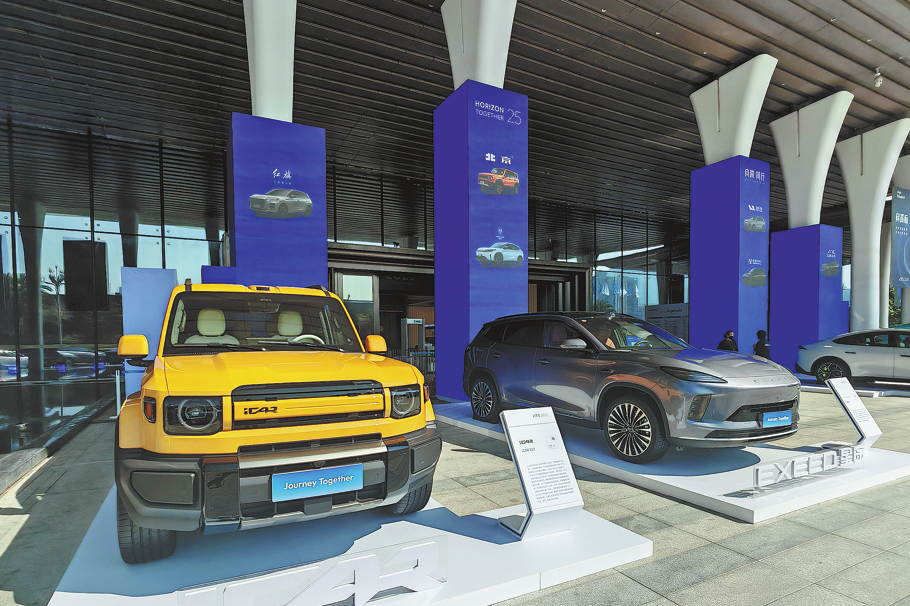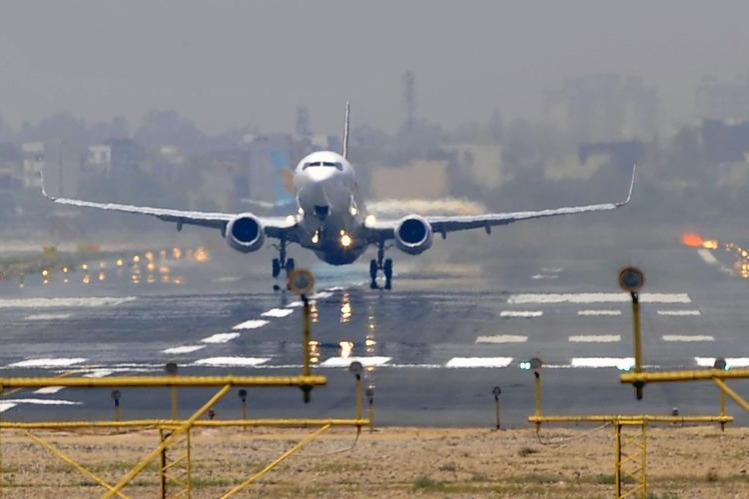Silk Road investment to link public, private growth

Project attracts interest as more seek to get involved in vital infrastructure development
China's Belt and Road Initiative became a hot talking point at the World Economic Forum in Davos, as global leaders gathered to search for new impetus of growth.
This surge of interest comes at a time when the importance of infrastructure investment is increasingly obvious, despite sluggish global growth curtailing spending in advanced economies.
"It's talked about so much. Businesses internationally knew about the Belt and Road Initiative but they don't know how to get involved, so now discussions are focused on the details," says Honson To, chairman of KPMG China.
| People welcome President Xi Jinping to Davos on Jan 15. Xu Jingxing / China Daily |
"A key part of how China has developed in the last 30 years has been laying out infrastructure within the country. It's a proven way. Now this concept will be exported to countries around the world with the Belt and Road Initiative," says To.
Launched by President Xi Jinping three years ago, the initiative is now gaining momentum after receiving support from more than 100 countries and international organizations, more than 40 of which have signed cooperation agreements with China.
In May this year, China will host the Belt and Road Forum for International Cooperation in Beijing, which will "discuss ways to boost cooperation, build cooperation platforms and share cooperation outcomes", as President Xi highlighted in his keynote address at Davos.
Summit participants welcomed the high importance Xi attached to the Belt and Road Initiative, saying it was a concrete demonstration of China's leadership in globalization and inclusive growth.
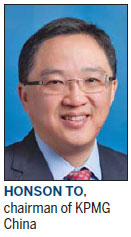
Thomas Maier, managing director for infrastructure at the European Bank for Reconstruction and Development, says China can play a leadership role in supporting sustainable infrastructure development that is also environmentally friendly. It can also contribute to the development of a global system where the government leads infrastructure investment and encourage private sector investors to follow suit.
Those values which EBRD champions are also coherent with the philosophy of the China-led Asian Infrastructure Investment Bank, which pledges to operate with a "lean, clean and green" model, meaning long-term, sustainable infrastructure will get priority for funding.
In June 2016 AIIB and EBRD agreed to jointly commit a total of $55 million to upgrade a key section of the motorway connecting Tajikistan with Uzbekistan, which is also one of AIIB's first projects.
Maier says another crucial way China contributes to the global infrastructure system is through funding provided by its large commercial banks.
He also applauds Chinese companies' export of important environmentally friendly infrastructure and technology to countries along the Belt and Road. So far Chinese companies have invested more than $50 billion in projects in those countries.
Lord Mark Malloch-Brown, former United Nations deputy secretary-general, says that the AIIB's ability to deploy capital, especially from the private sector, is impressive and an inspiration for the way multinational development banks could function.
"AIIB's capital commitment is able to attract private sector money because its agenda is closely aligned with the Chinese government's emphasis on China becoming an important trading nation," says Malloch-Brown, who is also chairman of the non-profit group the Business and Sustainable Development Commission.
The Commission, established at Davos in 2016, launched at this year's forum a report identifying a potential annual deficit of $2-3 trillion globally over the next 15 years.
cecily.liu@mail.chinadailyuk.com
(China Daily Africa Weekly 01/20/2017 page7)
Today's Top News
- Jimmy Lai found guilty of colluding with foreign forces
- Hong Kong court opens session to deliver verdict on Jimmy Lai's case
- China's economy posts steady growth in Nov
- Death toll rises to 16 in Sydney's Bondi Beach shooting
- Firm stance on opening-up wins praise
- World looks to new engines for growth in 2026
















